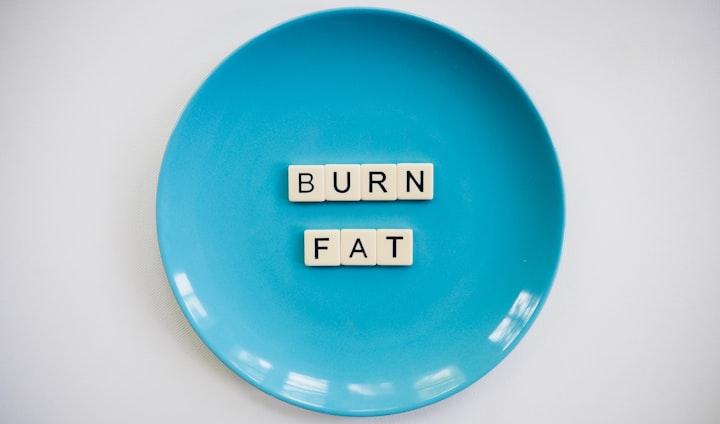Mens Weight Loss Diet
Weight loss is a common goal for many men seeking to improve their overall health and well-being. While there is no one-size-fits-all approach to weight loss, a well-balanced diet is a crucial component of any successful weight loss journey.

Introduction:
Weight loss is a common goal for many men seeking to improve their overall health and well-being. While there is no one-size-fits-all approach to weight loss, a well-balanced diet is a crucial component of any successful weight loss journey. In this article, we will outline a comprehensive weight loss diet for men, focusing on healthy food choices, portion control, and sustainable habits.
Understand Your Calorie Needs:
To achieve weight loss, it's important to create a calorie deficit. Start by determining your daily calorie needs based on factors such as age, height, weight, and activity level. A moderate calorie deficit of around 500-750 calories per day is generally considered safe and effective for gradual weight loss.
Emphasize Whole Foods:
Aim to base your diet on whole, unprocessed foods as they are typically more nutrient-dense and lower in calories. Include plenty of fruits, vegetables, whole grains, lean proteins, and healthy fats. These foods provide essential vitamins, minerals, and fiber while promoting satiety and reducing cravings.
Lean Protein Sources:
Protein plays a vital role in weight loss as it boosts metabolism, preserves muscle mass, and keeps you feeling fuller for longer. Include lean protein sources such as skinless poultry, lean cuts of beef or pork, fish, eggs, low-fat dairy products, and plant-based options like legumes, tofu, and tempeh.
Complex Carbohydrates:
Opt for complex carbohydrates instead of refined ones as they provide sustained energy and are higher in fiber. Choose whole grains like brown rice, quinoa, oats, and whole wheat bread. These foods digest slowly, preventing rapid spikes in blood sugar levels and helping you stay satisfied.
Healthy Fats:
Include moderate amounts of healthy fats in your diet, which are crucial for hormone production and nutrient absorption. Opt for sources like avocados, nuts, seeds, olive oil, and fatty fish like salmon or trout. However, be mindful of portion sizes as fats are calorie-dense.
Portion Control:
Controlling portion sizes is essential for weight loss. Use smaller plates, bowls, and utensils to create the illusion of a fuller plate. Fill half of your plate with vegetables, one-quarter with lean protein, and the remaining quarter with complex carbohydrates. This approach ensures a balanced meal while controlling calorie intake.
Mindful Eating:
Practice mindful eating by paying attention to your hunger and fullness cues. Slow down while eating, savor each bite, and avoid distractions like television or smartphones. This helps you become more aware of your body's signals, leading to better portion control and reduced overeating.
Hydration:
Staying hydrated is often overlooked in weight loss journeys. Water helps control appetite, aids digestion, and boosts metabolism. Replace sugary beverages with water, herbal teas, or sparkling water. Aim for at least 8 cups (64 ounces) of fluid per day, or more depending on your activity level and climate.
Meal Prepping:
Meal prepping can be a game-changer when it comes to maintaining a healthy diet. Plan and prepare your meals and snacks in advance, ensuring they are well-balanced and portion-controlled. This helps you avoid impulsive, unhealthy food choices when you're hungry and pressed for time.
Regular Physical Activity:
While diet plays a significant role in weight loss, combining it with regular physical activity enhances results. Engage in a combination of cardiovascular exercises (such as running, swimming, or cycling) and strength training (weightlifting or bodyweight exercises). Aim for at least 150 minutes of moderate-intensity aerobic activity per week, along with two or more days of strength training.
Conclusion:
Embarking on a weight loss journey requires commitment, discipline, and a balanced approach to eating. By following a comprehensive weight loss diet for men that emphasizes whole foods, lean proteins, complex carbohydrates, and portion control, you can achieve sustainable weight loss while maintaining good health. Remember to consult with a healthcare professional or a registered dietitian before making any significant dietary changes, especially if you have any underlying health conditions or specific dietary requirements.
About the Creator
Muhammad Sajid
"John Doe is a versatile writer with a passion for storytelling. With a keen eye and a creative mind, he captivates readers with his vivid imagination. John's writing promises an engaging and memorable journey for every reader."





Comments
There are no comments for this story
Be the first to respond and start the conversation.